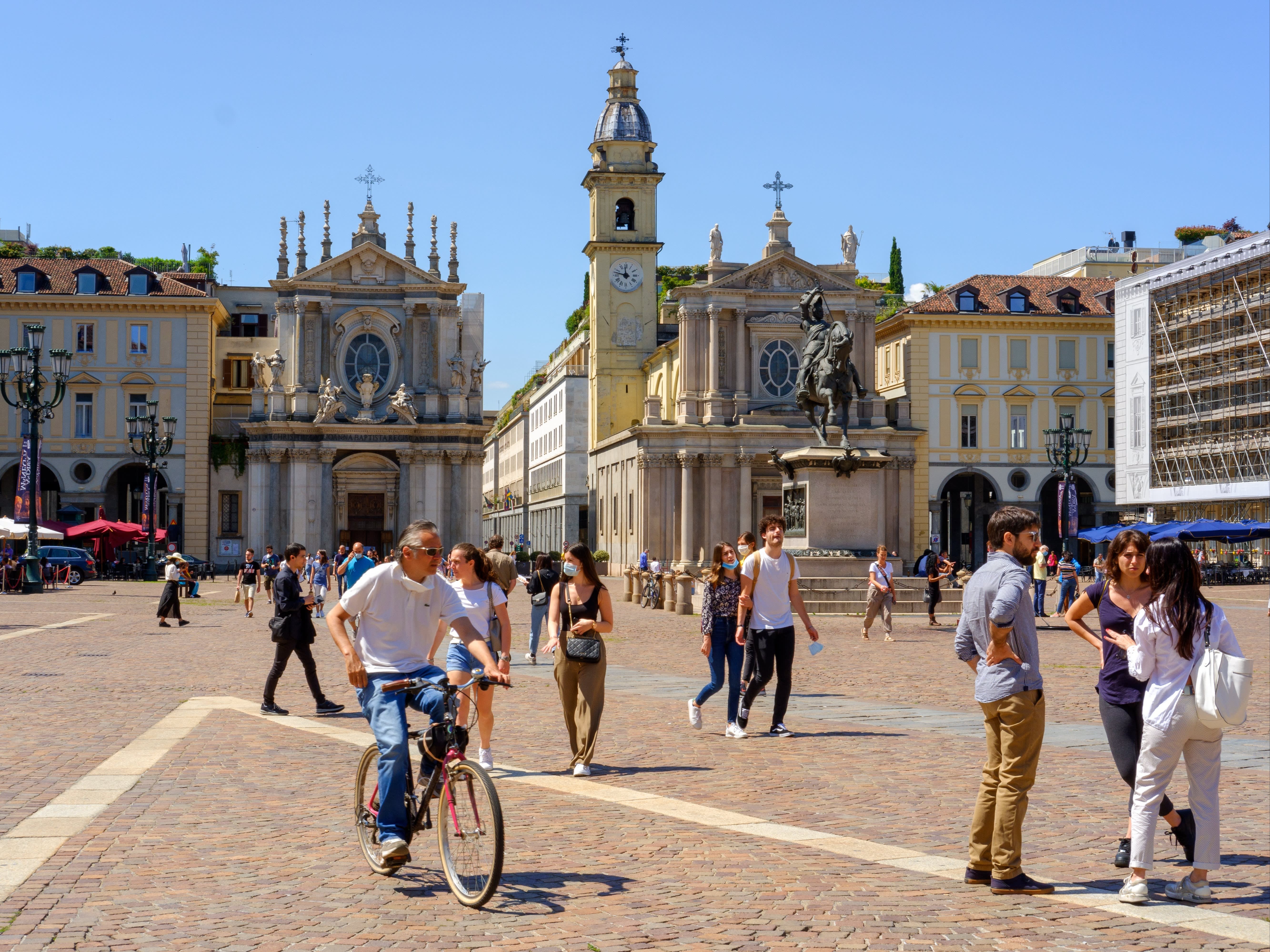Tips for Finding a Job in Turin as an Expat
Finding a job in a foreign country can be daunting. This guide will tell you what the job market in Turin looks like and what to expect from the job search.
Yordan
If you're thinking of moving to Turin for work, you're in for a treat. While it's not as well known as Milan and the rest ofthe best cities in Italy, Turin has a lot to offer to expats looking for a new challenge.
With its thriving economy and close proximity to other popular European destinations, Turin is the perfect place to call home while working abroad. Plus, the cost of living in Turin is relatively low compared to other major cities in Italy.
In this article, we’ll walk you through what it's like to work in Turin as an expat by giving you information on:
- Whether or not Turin is a good place for expatriate workers
- What you’ll need to legally work in Turin
- Popular jobs in Turin
- The average salary in Turin
- How to look for a job in Turin

Is Turin a Good Place to Work for Expats?
Turin is a good place to work for expats because there’re plenty of job opportunities available in the city, so the hassle of relocating here will be worth it.
Besides the abundant job opportunities in Turin, there’re several other reasons why you’d want to work here:
-
The small footprint of Turin means that the city is extremely easy to get around, meaning that you’ll save money on fuel and public transport.
-
Being a working professional in Italy grants you access to Italy’s amazing healthcare system which ranks among the best in the world.
-
The Italian culture is immaculate and you’ll find yourself enjoying the La Dolce Vita on the daily.
-
Turin has lots of hidden gems to visit; you’ll never get bored of things to do!
-
Turin is very close to the Alps, which makes for great weekend trips.

The Most Sought-After Professionals in Turin
If you’re set on moving to Turin for a job, here’re some of the industries that offer in-demand jobs. Turin’s well known for its car manufacturing industry, but the city has a number of other industries, including electronics, chemicals, and textiles. So you can expect to find many job opportunities if you have a technical, educational or hospitality background__.
There’re a number of English-speaking job opportunities available in the city, which makes it easier for expats to find work.The jobs for English speakers are mostly found in the hospitality and educational sectors. If you have the right qualifications for being an English teacher or for working in the hospitality sector, you can expect to not have to work too hard for a job opportunity.
Hospitality and Education are the sectors where you’re also most likely to find part-time job opportunities!
When it comes to the jobs that require a technical background, you should be ready to learn Italian at a good level since most of them require it. The available positions are mostly in the lines of software development, engineering, consulting, supply chain and marketing. It’s not impossible to find a job that doesn't require you to know Italian in any of those fields, but it would require a lot more digging.
Other In-Demand Jobs in Turin
There’ are several other niches that offer positions to expats who know both Italian and English. The exact niches are:
- Media and communications
- Human resources
- Finance and accounting

What You Need to Legally Work in Turin
Do I Need a Visa to Work in Turin
Those who are EU or EEA citizens don’t require a work visa to enter Italy.
If you’re a non-EU citizen, on the other hand, you’ll have to secure an Italian work visa in order to enter the country. You’ll need to start the process of acquiring it at least 30 days before your intended travel date.
Obtaining an Italian work visa can prove to be a difficult procedure, so we recommend you to start as early as 3 months before your planned departure to Italy.
The process of acquiring an Italian work visa is as follows:
-
You need to secure a job in a company that is based in Italy.
-
Your future employer is going to liaise with the local immigration office on your behalf and secure a work permit for you.
-
Your work permit can take anywhere between 6 and 12 weeks and you’ll receive a copy of your work permit from your Italian employer.
-
The business that hired you will inform the embassy in your country that you’ll be applying for a work visa in the near future.
-
You’ll have to personally file your Italian work visa application at your local embassy.
-
Your work visa will be ready for collection within 2 to 30 days.
-
You’ll have to provide a copy of your job contract at the local immigration office within 8 days of your arrival in Italy.
The Italian work visas that are granted each year are capped at around 70,000. The annual quota for 2022 is already full and the application for next year will be open at the end of January 2023.
Do I Need a Residence Permit to Work in Italy
You’ll need a temporary Italian residence permit to work and live in Italy for more than 3 months. Unlike the work visa, you’ll need to acquire one, regardless of your country of origin. This process has to start after your arrival in Italy.

What Is the Average Salary in Turin
Now that you’re aware of the fields where finding a job would be the easiest, let’s set the right salary expectations.
The table below should give you a good base to negotiate a nice salary:
| Type of Job | Average Yearly Salary |
|---|---|
| Software developer | €38,000 |
| Engineer | €46,000 |
| Finance and accounting specialist | €50,000 |
| Consultant | €37,000 |
| Supply chain specialist | €34,000 |
| Marketing specialist | €36,000 |
| Media and communications | €26,000 |
| Human resources specialist | €30,000 |
| English teacher | €31,000 |
| Hospitality worker | €19,000 |
The numbers above are averages of the minimum and maximum salaries that are the result of our research across different sources.

How to Look for Jobs in Turin
Finding a new job in a new city can be difficult and stressful. You’ve got to know what to anticipate and be proactive to make your job hunt in Turin go more smoothly!
LinkedIn provides a useful starting point for looking for jobs in Turin but you shouldn’t limit yourself to the job listings that you come across. If the company you wish to work for doesn’t have any open positions listed, then you can connect with the HR team and communicate what you’d bring to the company if they hire you.
If LinkedIn isn’t enough, the other popular job platforms you should look into are:
Apart from the traditional job portals, it’s common for Italian companies to have their job openings listed in local periodicals like The Local, La Stampa and E Polis Torino.
If looking for a job independently doesn’t work out, recruitment agencies, such as Adecco, can be a major help in finding a job that is the right fit for you.
Preparing Your CV for a Successful Application
Your CV’s the first step you’ve to handle to increase your chance to land a job.
To be as successful as possible in your job hunt in Turin, your CV should contain:
- Your personal details
- A formal picture of yourself
- Your academic and professional background
- Any relevant skills and certifications

Now that you’ve the most important information about finding a job and working in Turin as an expat, you should get a better idea of what your checklist for moving to Italy will look like.
Please reach out to content@housinganywhere.com if you have any suggestions or inquiries about the content on this page.
Related articles
In this article
Moving to Turin?
Book your rental accommodation from verified landlords in Turin even before relocating. No viewings needed.
Search Now

